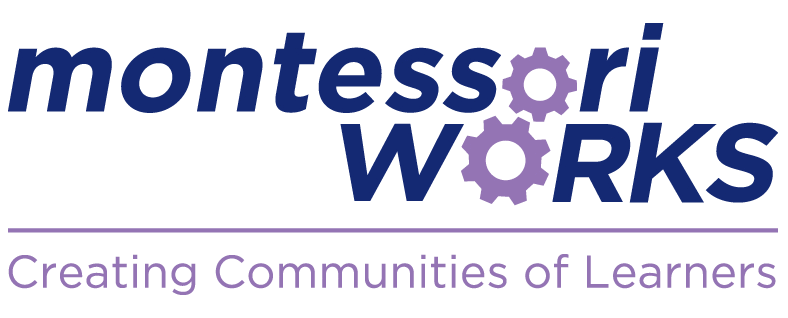What is Montessori Works?
Montessori Works is a school development organization founded to increase accessible, authentic, quality Montessori education in Delaware. The board includes Montessori experts, educators, parents, and others who are working to make Montessori programs a more broadly available option in the public arena.
Montessori is a proven educational model with limited availability to children in Delaware. Montessori Works is making Montessori an option for more families by:
Expanding Montessori in the Public Sector by providing comprehensive school start-up support, including development of curriculum, policies and community connections; operations planning and support; and professional development and human resource assistance for districts and charters.
Established Sussex Montessori School in Sussex County which opened in the Fall of 2020.
Increasing the Montessori Teacher Supply in Delaware by creating a Montessori Training program in partnership with the National Center for Montessori in the Public Sector (NCMPS) and potential local university partners and focusing on dual-certification requirements for Montessori teachers and administrators in public schools.
Increasing Montessori Awareness by sponsoring seminars and other opportunities for communities to explore how children learn through Montessori.
Advocating for Pro-Montessori Public Policy by working with State legislators, Governmental Departments and Agencies, Non-Profit organizations and Education-Reform minded corporate citizens and community members.
Click here if you want to donate to Montessori Works Delaware
Montessori is Right for Your Child: 10 Reasons Why
“Montessori” is a term that has many layers: A method, a philosophy, and a set of materials, Montessori is a form of education that can suit any learner. Here are a few reasons why it is right for your child:
- Multi-age classrooms allow children to learn from each other and practice what they are learning in an authentic way. These classrooms allow younger children to learn from older classmates and older children to firm up their knowledge by guiding, and therefore practicing with, younger ones.
- The Montessori method seeks to guide children to independence. Montessori classrooms enable independent learners through activities, lessons, materials, and experiences enabling all children to be able to “do it myself.”
- The importance of hands-on learning is fundamental to Montessori classrooms. The Montessori method recognizes the importance of the senses in learning. Hands-on lessons allow children to build a conceptual base kinesthetically.
- Montessori students learn organizational skills that help them throughout their education and life. The concrete Montessori materials are designed to help children develop coordination, order, and control. Lessons are designed to help them internalize a complete cycle of work: students get out a material or activity, carry it to a self-chosen workplace, complete the work in the way it was presented, record the results, and return the work to its place of origin in the classroom. Students internalize this cycle which prepares them for completing the tasks and work that lie ahead in life, from science fair projects to household chores to time management in the workplace.
- Montessori teachers are highly-qualified experts in pedagogy and child development. Typically, teachers have teaching degrees and certification from the state, as well as specialized training/certification in the Montessori method.
- The Montessori philosophy stresses the importance of observation. Through one-on-one work with, and observation of students, teachers pinpoint the needs of individual learners. Teachers then construct lessons and follow-up work for each child. This individualized approach allows children to develop understanding at their own pace.
- Montessori classrooms are designed to suit the developmental needs of children. The Montessori philosophy recognizes age-appropriate and expected abilities and sensitivities of learners at all ages and uses this information to create dynamic and effective instruction.
- Montessori classrooms are beautiful, inviting, and peaceful. The “prepared environments” in Montessori schools include shelving at eye-level that enables students to see all the materials and activities that are available to them. These flow from least to most complex allowing skills and concepts to build on one-another. They are self-correcting which furthers independence. Classrooms include quiet, peaceful spaces.
- Montessori education teaches students to practice inclusivity, to be part of a diverse community, and to be responsible citizens.
- Maria Montessori said, “One test of the correctness of educational procedure is the happiness of the child.” Montessori students are self-determined, well-adjusted and happy!
Authors: E. McCrae Harrison & Scott Richardson, Montessori Works


